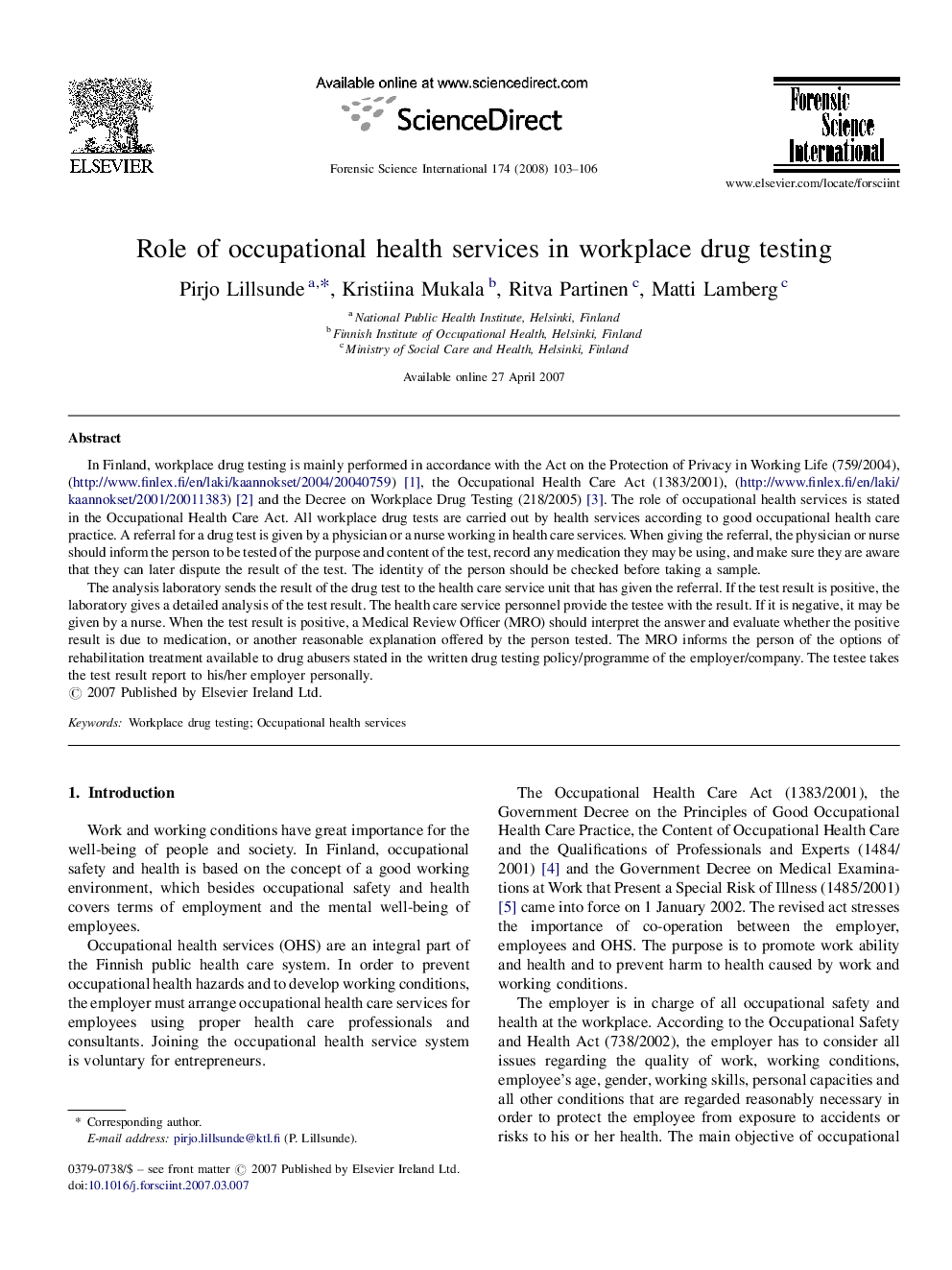| Article ID | Journal | Published Year | Pages | File Type |
|---|---|---|---|---|
| 97746 | Forensic Science International | 2008 | 4 Pages |
In Finland, workplace drug testing is mainly performed in accordance with the Act on the Protection of Privacy in Working Life (759/2004), (http://www.finlex.fi/en/laki/kaannokset/2004/20040759) [1], the Occupational Health Care Act (1383/2001), (http://www.finlex.fi/en/laki/kaannokset/2001/20011383) [2] and the Decree on Workplace Drug Testing (218/2005) [3]. The role of occupational health services is stated in the Occupational Health Care Act. All workplace drug tests are carried out by health services according to good occupational health care practice. A referral for a drug test is given by a physician or a nurse working in health care services. When giving the referral, the physician or nurse should inform the person to be tested of the purpose and content of the test, record any medication they may be using, and make sure they are aware that they can later dispute the result of the test. The identity of the person should be checked before taking a sample.The analysis laboratory sends the result of the drug test to the health care service unit that has given the referral. If the test result is positive, the laboratory gives a detailed analysis of the test result. The health care service personnel provide the testee with the result. If it is negative, it may be given by a nurse. When the test result is positive, a Medical Review Officer (MRO) should interpret the answer and evaluate whether the positive result is due to medication, or another reasonable explanation offered by the person tested. The MRO informs the person of the options of rehabilitation treatment available to drug abusers stated in the written drug testing policy/programme of the employer/company. The testee takes the test result report to his/her employer personally.
